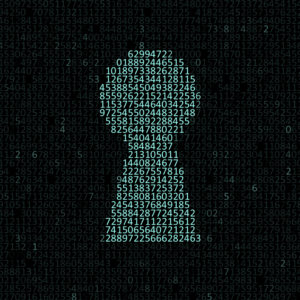The investigations into Russian meddling in the 2016 U.S. election continue to reveal a full-scale assault on American democracy. From sophisticated social media efforts and traditional information operations to attempted hacks of voter rolls and state electoral systems, the Russians engaged in a campaign to undermine American democracy.
This is not the only time they have engaged in such activity. In countries like the Netherlands, Ukraine and France, the Russians have used influence operations to affect political campaigns and candidates, and to attack perceived opponents of Vladimir Putin’s Russia and support those more sympathetic to Russian interests.
The Russians have decided to do this to achieve three complementary goals. They want to undermine faith and confidence in democracy and its institutions from within; exacerbate social and political divisions advantageous to Russian interests; and obfuscate or confuse the truth and amplify narratives that align with Russian interests, even when patently false.
These types of attacks certainly reveal the modern dangers and vulnerabilities to open, democratic processes, systems and data. More fundamentally, they reveal a new form of combined, asymmetric influence and cyber-attacks that target democratic states and institutions.
The United States and its democratic allies must treat these campaigns as strategic threats to democracy. They must also realize that the Russian playbook can be copied and deployed by other state and non-state actors who want to influence democratic societies.
The 2016 campaign’s details are important and continue to be revealed as investigations in Congress and at the Federal Bureau of Investigation unfold. We also are learning through intelligence community findings and Department of Homeland Security analyses.
There does not seem to have been any cyber or other disruptions to the voting systems on Election Day in 2016. But there were attacks on state voting systems, including the hacking of an election-service provider and access to voting rolls in Illinois.
The danger is the ability of foreign actors to manipulate, distort, or even destroy voting data, access or systems. This goes to the heart of the integrity of the electoral process. Even if the Russians or other foreign actors were not able to manipulate voting patterns, machines or electoral results, the mere act of undermining confidence in institutions, leaders and democracy would be a strategic objective unto itself.
Complementary steps need to be taken to confront this new type of threat, so here are my suggestions:
Clarity, Credibility, Closure on Russian Investigations
The investigations need to stay focused on understanding how the Russians attempted to affect or influence the election. This requires clarity and credibility in the findings — from Congress and Special Counsel Robert Mueller. This also requires closure to help restore confidence in the system. Understanding the tools and tradecraft of Russia and its proxies will help the United States and its allies create collective awareness and counter future campaigns.
Defense and Redundancy of Current Systems
The electoral system is run at the state and local levels, but we need a complete review of how the “supply chain” of the electoral process is protected. That includes the integrity of voter rolls to the security of voting machines, software, and results.
Funding Transparency
We need a greater, more rigorous transparency in campaign funding and reporting. This should include making the ownership of shell companies in the United States transparent. Greater transparency would avoid the possibility of foreign actors forming U.S. companies to fund or support political campaigns or processes. The efforts should include more open monitoring of the purchase of advertisements and the funding of social media campaigns intended to influence political processes.
Information Validation
The trickiest challenge is ferreting out “fake news” that is being used to undermine democracies. European countries and agencies have established centers to counter fake news. In the Czech Republic, for example, a unit was established to discover and counter inaccurate information and fake news, particularly any tied to Russia.
Twitter and Facebook are now grappling with how best to address this challenge, by flagging false news and perhaps moving to a Better Business Bureau-like model to validate stories and information. At a minimum, countries can create mechanisms in the public and private sector to counter the ideas and reveal their falsity and origins.
Deterrence
We need clarity — declared publicly by the executive branch — that attacks on the U.S. electoral system will be treated as would other cyber-attacks or threats on our infrastructure and that the United States will respond — proportionately and in the manner and timing of our choosing.
We also need a campaign to reveal the sources and methods of Russian and other meddling in the U.S. electoral system. We need to map where Russian money and influence are dotting the electoral landscape.
The United States and European Union should impose new types of sanctions together against those attempting to influence and undermine democratic systems and processes. This would involve publicly exposing those individuals and entities involved, and the freezing of their assets and locking out of the Western financial and commercial system.
Finally, the United States should work with state, local, and private entities to respond to malware and cyber-attacks that attempt to compromise the electoral system. The fact that active defense measures – of a variety of sorts – could be employed should be communicated and form part of a deterrence strategy.
The Russian attacks have revealed a bolder strategy and set of vulnerabilities to the democratic system. These are threats not just from Russia and not just targeted at the United States. This is a new form of asymmetric influence and warfare, which needs to be treated as a strategic threat to the United States and its democratic allies.

